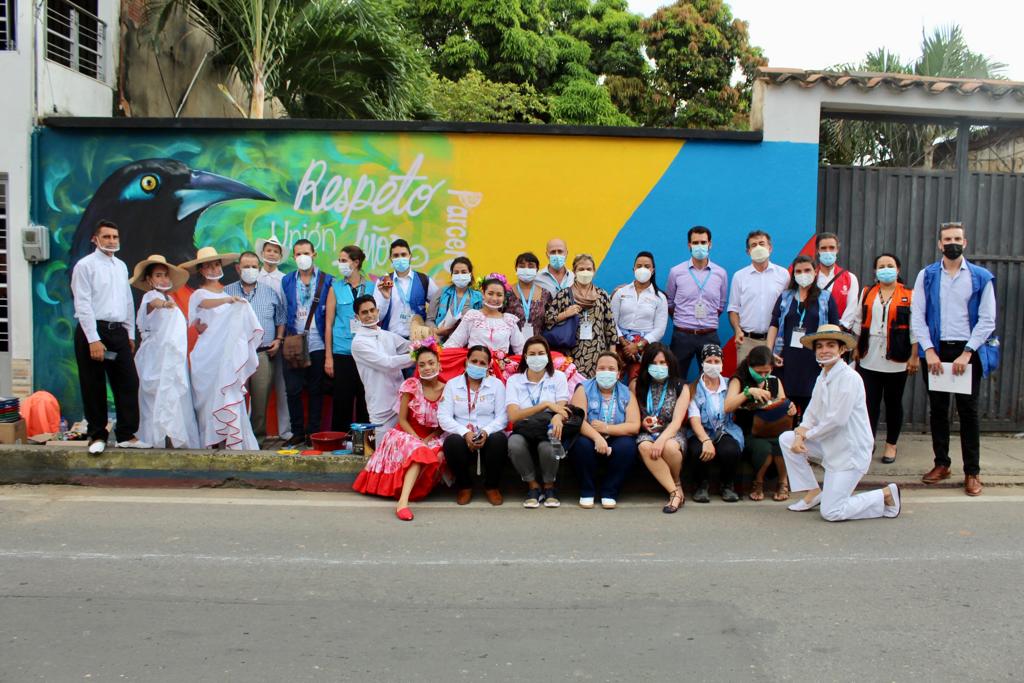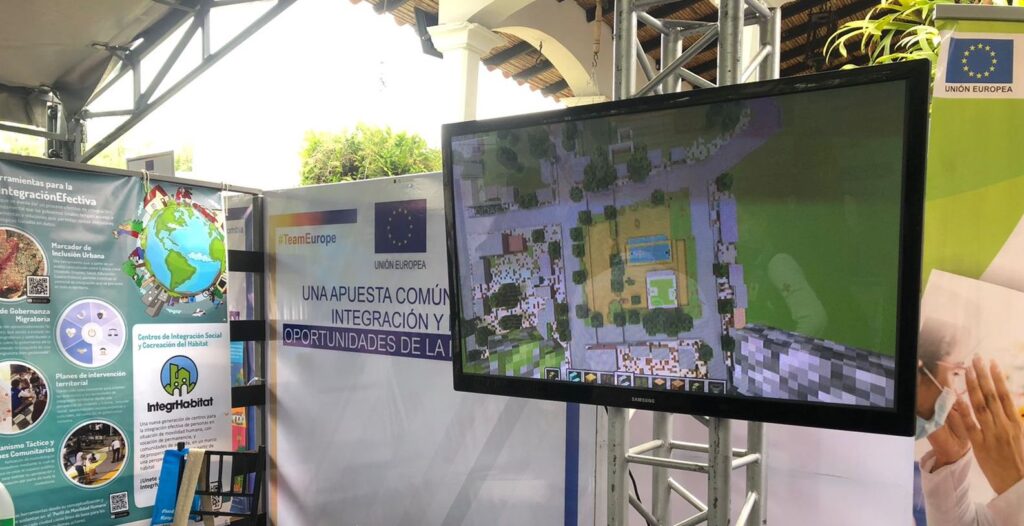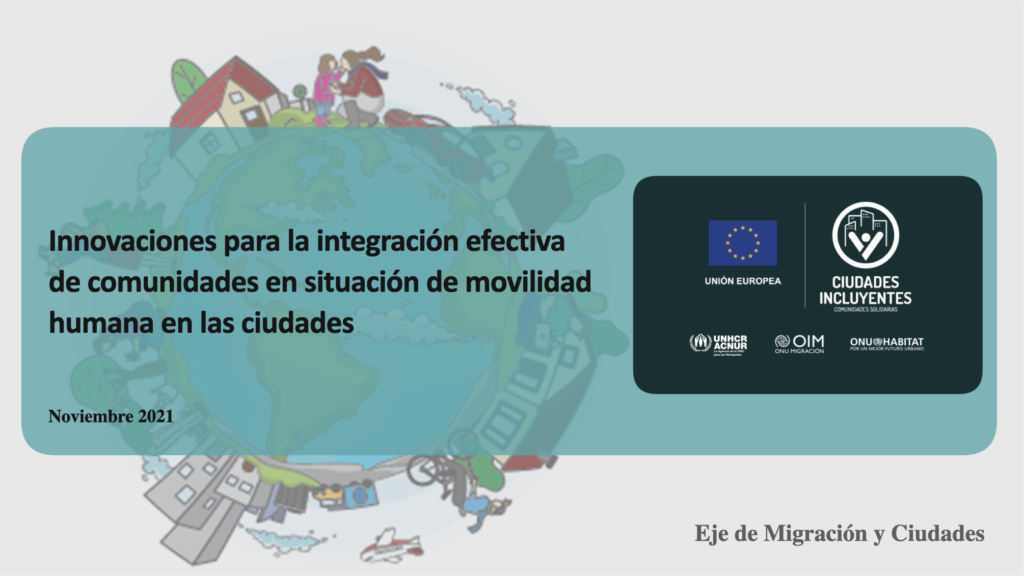
The meeting #EuropaCreeEnColombia: a common commitment to integration and migration opportunities, held in the city of Cúcuta and organized by the European Union in conjunction with its international cooperation allies and agencies of the United Nations System, had as objective to make visible the advantages that integration and inclusion offer, both for the refugee and migrant population and for the host communities. The event was attended by the Government of Colombia; the Ambassador of the European Union, Gilles Bertrand, representatives of the German Development Cooperation – GIZ and the International Organization for Migration –IOM. As well as representatives of the three implementing agencies of Inclusive Cities, Solidarity Communities, a project that participated with stand number 1 of the event, where the importance of promoting effective integration from a territorial perspective could be evidenced.
At the inauguration, the Ambassador of the European Union, Gilles Bertrand, mentioned that “Colombia has done what few countries are able to do: adopt a generous and long-term position that allows maximizing the benefits of migration, both for migrants and as for the country and the communities that welcome them. We will continue to support innovative and benchmark programs such as Inclusive Cities, Solidarity Communities”. Confirming the allocation made by the agency -of 8 million euros- to continue the care of people in human mobility from Venezuela.
During the morning session, Inclusive Cities led one of the four tables that took part in the event, called ‘Migrations and Cities’, which prompted a dialogue on the importance of understanding cities as an ideal platform for integration. “In order to make all the value generated by migration tangible, it is very important to provide tools to local governments so that they increase their capacities for decision-making based on data, which can


also serve as a reference in terms of public policy” assured Roi Chiti, coordinator of UN-Habitat for the Andean Countries and director of CICS, while explaining all the tools that have been developed in the cities of Colombia that are in the project.
Subsequently, an Entrepreneurship Fair was held, developed in the Territorial Economic Development Plan -made by CICS- of Cúcuta, where more than 20 productive units have been identified, to promote the entrepreneurship of potential economic sectors among the refugee and migrant population. with the host community, based on the sum and innovation of Colombian and Venezuelan technical knowledge.
The day ended with the completion of an Integration Mural, designed by the AtacARTE collective (a group that links international and national artists to promote messages of integration along the Colombian-Venezuelan border) who conceptualized the mural from the sum of natural icons of both nations.